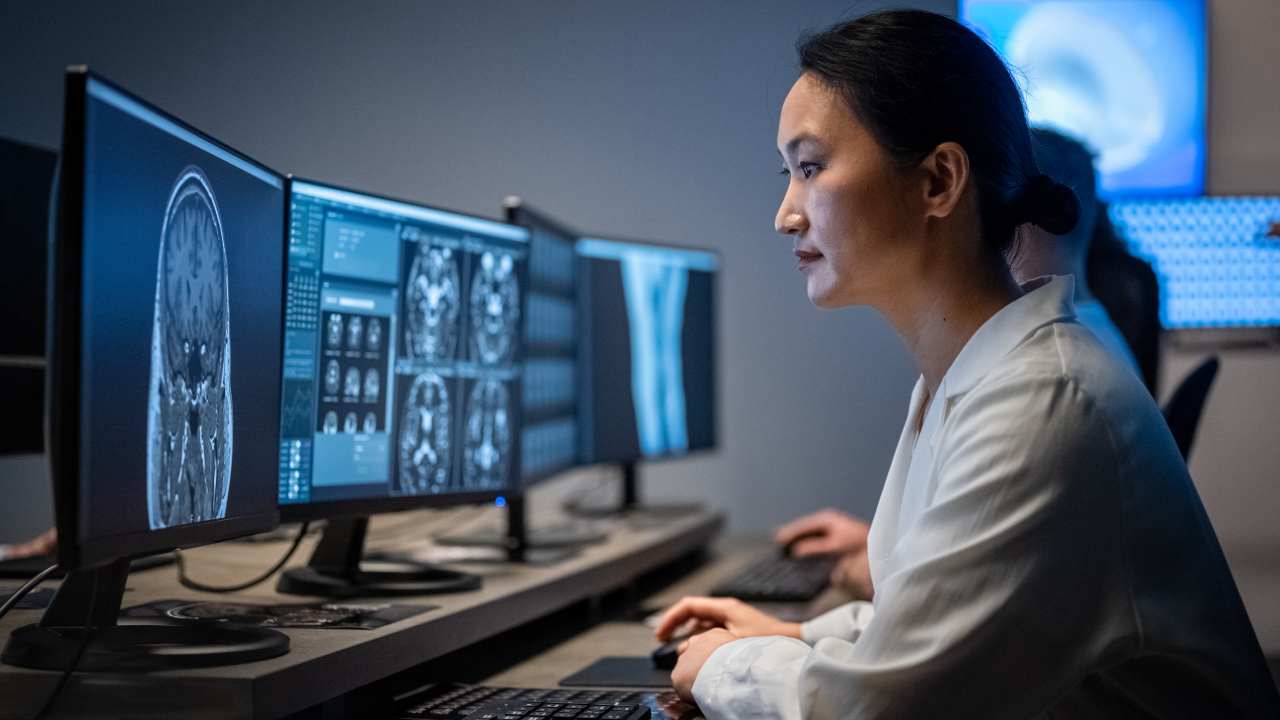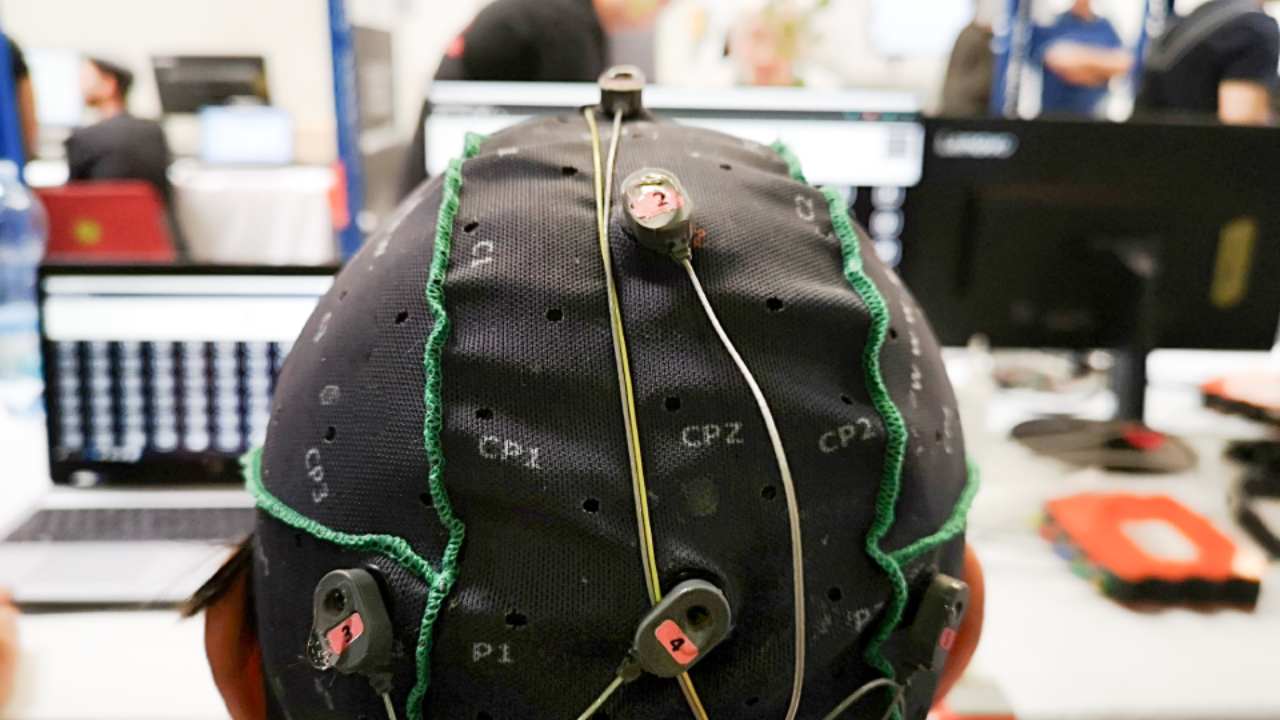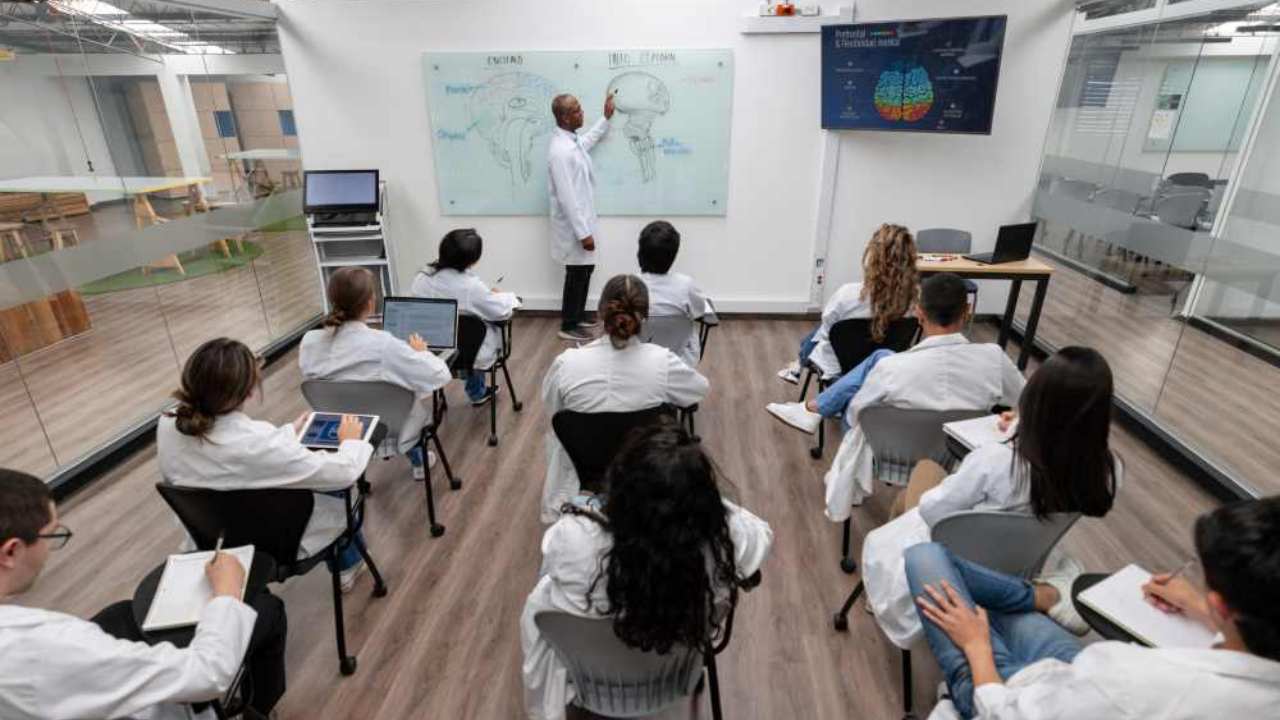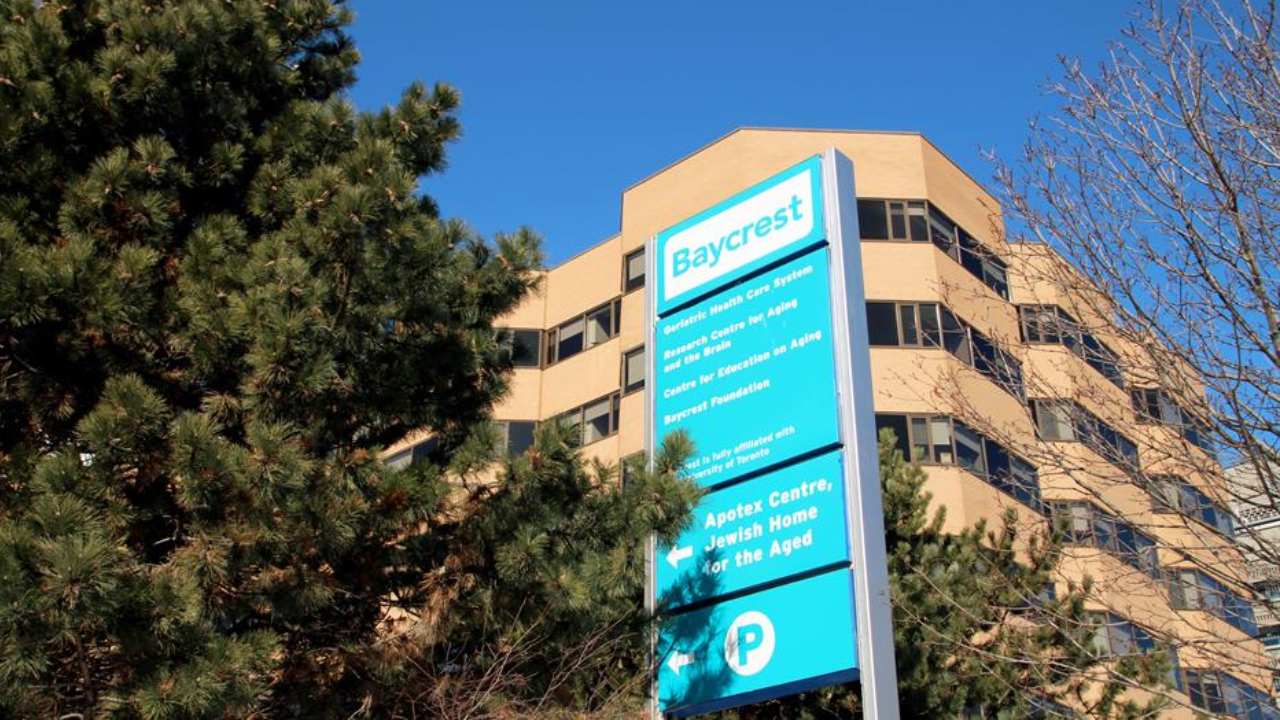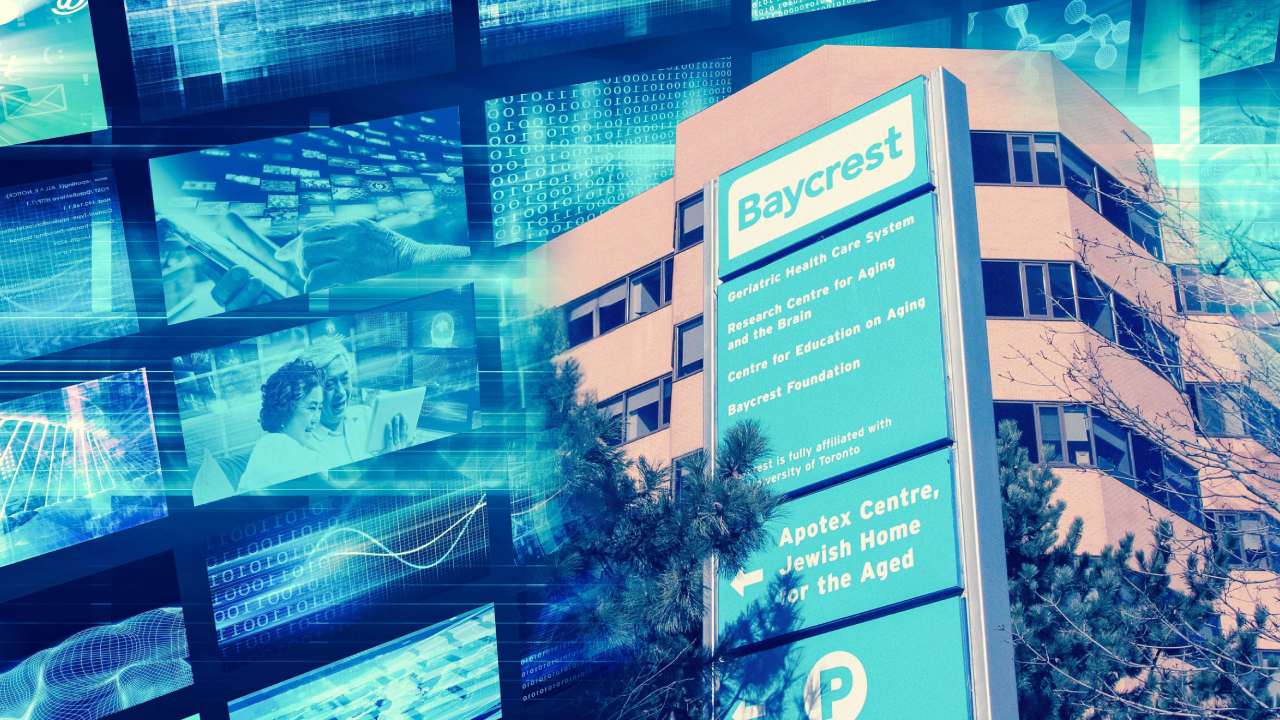
At Baycrest, scientists are using gentle magnetic pulses to explore a bold new question: Can stimulating the brain help prevent or slow dementia?
This innovative technique, called Transcranial Magnetic Stimulation (TMS), is part of Baycrest’s groundbreaking Bresver Neuromodulation & Therapeutics Program. TMS is already approved in Canada for treating depression, and Baycrest researchers are now investigating how it might also strengthen memory, mood, and brain resilience in older adults.
How TMS Works
TMS uses a small electromagnetic coil placed near the scalp to deliver focused magnetic pulses to specific brain regions. These pulses painlessly activate brain cells and help regulate activity in networks linked to mood, motivation, and memory.
Unlike traditional deep-brain stimulation, TMS is non-invasive. It does not require surgery, anesthesia, or recovery time. Many people describe the sensation as a light tapping on the head.
From Depression to Dementia Prevention
Dr. Linda Mah and Dr. Jed Meltzer are leading Baycrest’s research on Transcranial Magnetic Stimulation (TMS), beginning with older adults living with depression that has not improved with medication.
Depression is common, but when it becomes chronic or long-lasting, it can do more than affect mood. Studies show that persistent depression can increase the risk of developing dementia, likely because it disrupts brain networks involved in memory, attention, and emotional regulation.
By using TMS to lift mood and restore healthy brain activity, Baycrest scientists hope not only to relieve depression but also to protect against future cognitive decline.
Their first clinical trial targets a deep brain region called the anterior cingulate cortex (ACC), which helps regulate both emotion and focus. The team is using a new protocol called accelerated intermittent theta-burst stimulation, which condenses what used to be six weeks of treatment into just one week of daily sessions.
Early findings are promising. Stimulating the ACC appears to improve mood, attention, and decision-making, and may even help preserve memory and thinking abilities. These results suggest that TMS could one day play a vital role in both treating depression and preventing dementia.
Building Resilience Against Dementia
The goal goes beyond symptom relief. By improving brain network function, TMS could help build cognitive reserve, which is the brain’s natural ability to stay strong and flexible even when faced with disease. Strengthening this reserve could help delay or even prevent the onset of Alzheimer’s and related dementias.
Baycrest researchers also plan to explore whether TMS or similar forms of deep stimulation can be adapted into portable, home-based devices. This would make treatment more accessible and bring brain health technology into everyday life.
The Future of Brain Stimulation at Baycrest
The work of Dr. Mah and Dr. Meltzer is part of Baycrest’s larger mission to transform dementia care through neuromodulation. By using light, electricity, and magnetism to gently tune brain activity, these researchers are helping redefine how we protect the mind as we age.
At Baycrest, every magnetic pulse carries the same spark of hope: that one day, preventing dementia could be as simple as helping the brain restore its own rhythm.
Related Articles:



